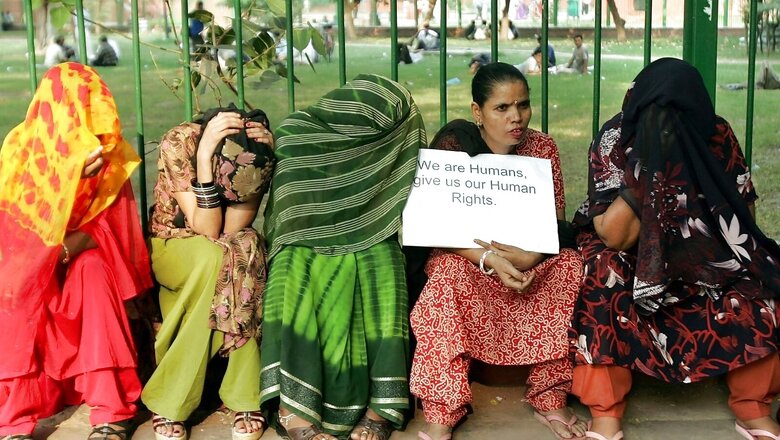
views
In a significant order this week, the Supreme Court directed that police should neither interfere nor take criminal action against adult and consenting sex workers. The apex court recognised sex workers as a “profession” and added that the sex workers are entitled to dignity and equal protection under the law.
“It need not be gainsaid that notwithstanding the profession, every individual in this country has a right to a dignified life under Article 21 of the Constitution,” the court observed. The Supreme Court in its order stated “voluntary sec work is not illegal”.
The significant order is not new. The judiciary in the recent years have passed several significant judgments promoting equality before the law and promoting individual freedom:
Unmarried couple staying in a hotel Not illegal
An unmarried couple staying together in a hotel is neither illegal nor a criminal offence, the Madras High Court stated in 2019. It also made it clear that a live-in relationship between two adults cannot be deemed to be an offence.
Justice MS Ramesh also directed the authorities in Coimbatore city to de-seal a service apartment complex which had been sealed earlier after an unmarried couple was found staying together.
Justice Awaited on Marital Rape
Recently, a two-judge bench of Delhi High Court pronounced split verdict on criminalising marital rape, leaving the law unchanged. Justice Rajiv Shakdher ruled in favour of criminalising marital rape while Justice Hari Shankar disagreed.
The much-debated issue of criminalising marital rape will go to the Supreme Court now that the two-judge bench of the Delhi High Court failed to come to a consensus on their verdict.
Justice Shankar held that Exception 2 to Section 375 doesn’t violate Constitution as it’s based on intelligible different. Under the exception given in Section 375 of the IPC, sexual intercourse or sexual acts by a man with his wife, the wife not being minor, is not rape.
Decriminalising gay sex
Earlier in 2018, in a landmark judgement, the Supreme Court scrapped a colonial-era ban on gay sex sparking celebrations across the country.
Gay sex is considered taboo by many in socially conservative India, as well as some countries in the subcontinent. It was reinstated as a criminal offence in India in 2013, punishable up to 10 years in prison, after four years of decriminalisation.
Recognising transgender as third gender
In 2018, the Supreme Court on Tuesday created the third gender status for the transgenders. The move changes the earlier norm where the transgenders were forced to write male or female against their gender.
The apex court had also asked the centre to treat transgender as socially and economically backward. The judgment allowed admission in educational institutions and given them employment on the basis of the third gender category.
Read all the Latest India News here

















Comments
0 comment